Indigenous Governance Database
Honoring Nations Reports
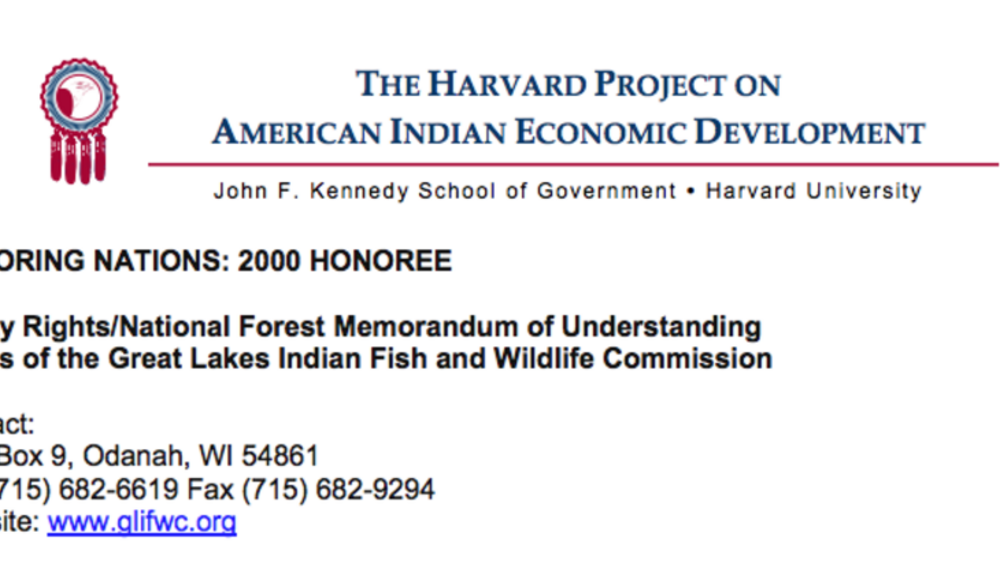
Great Lakes Indian Fish and Wildlife Commission's Treaty Rights/National Forest MOU
The Great Lakes Indian Fish and Wildlife Commission (GLIFWC), a tribally chartered intertribal agency, negotiated a memorandum of understanding (MOU) with the US Forest Service that both recognizes and implements treaty-guaranteed hunting, fishing, and gathering rights under tribal regulations and…
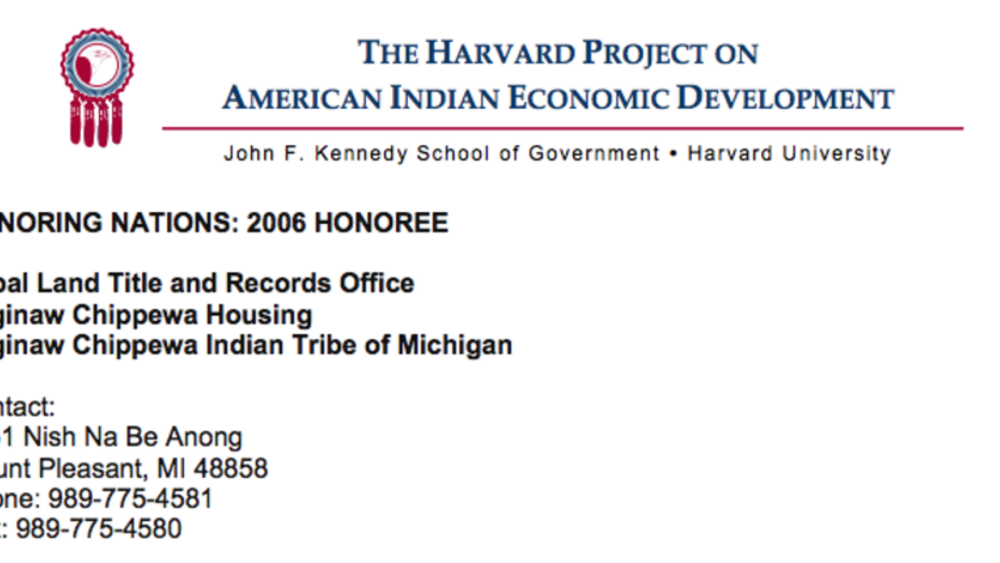
Saginaw Chippewa Tribal Land Title and Records Office
With the ultimate goal of seeing a time when Native people and nations once again own and manage the land within the boundaries of every reservation as well as those lands that are culturally important to them beyond reservations, the Tribal Land Title and Records Office keeps all records and…
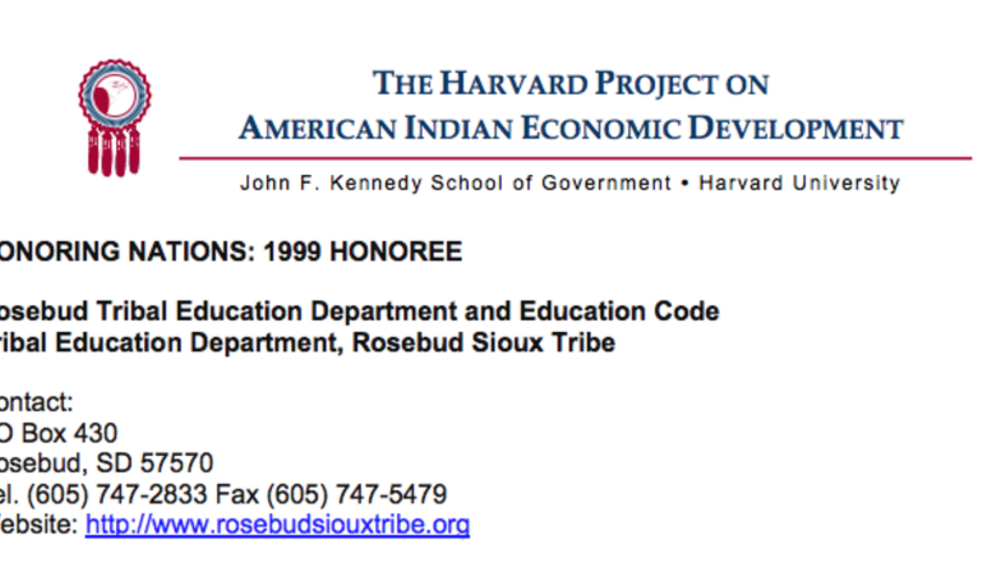
Rosebud Sioux Tribal Education Department and Code
Responding to disproportionately low academic attendance, achievement, and attainment levels, the Tribe created an education department (TED) in 1990 and developed a Code that regulates and coordinates various aspects of the tribal schools, public schools, and federally-funded Indian education…
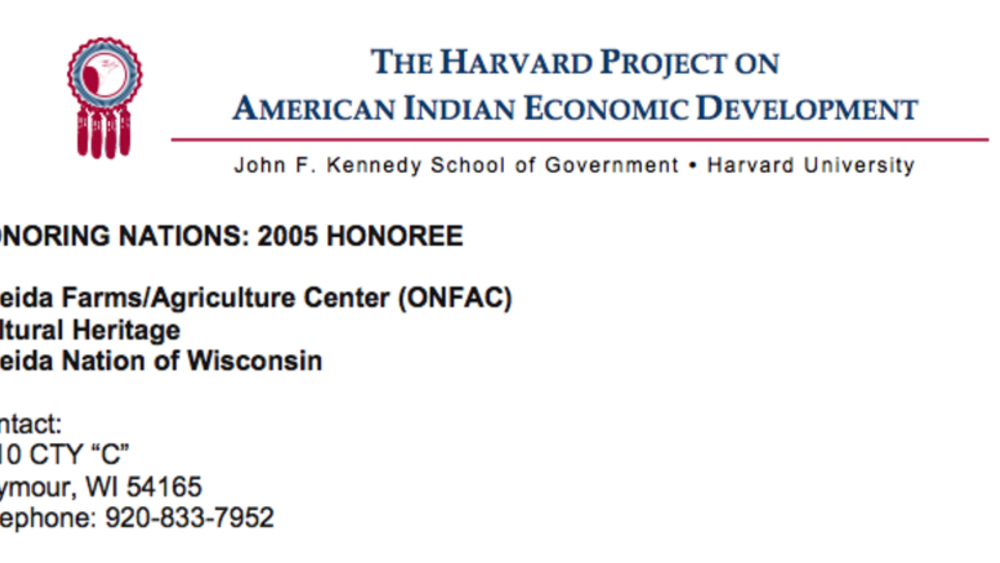
Oneida Nation Farms
In the 1820s, a portion of the Oneida people of New York moved to Wisconsin, where they took up their accustomed practices as farmers. Over the next hundred years, the Oneida Nation lost nearly all its lands and much of its own agrarian tradition. In 1978, the Oneida Nation of Wisconsin established…
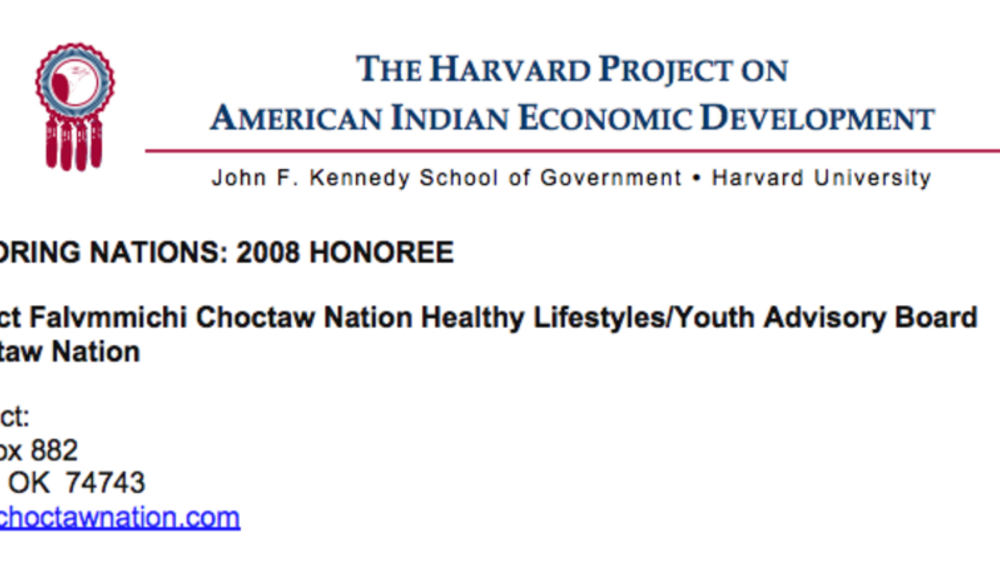
Project Falvmmichi (Choctaw Nation of Oklahoma)
"It is not cool to hit or be hit" is the straightforward motto of Project Falvmmichi, a school-based program of the Choctaw Nation designed to tackle the problem of domestic violence. The program teaches elementary school students positive ways to deal with anger and resolve conflicts. Today, more…
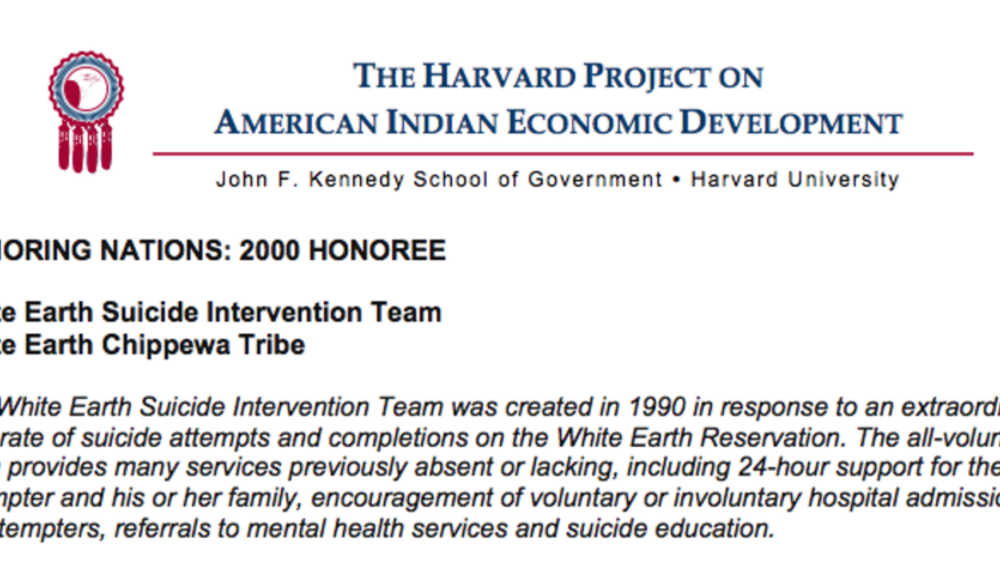
White Earth Suicide Intervention Team
The White Earth Suicide Intervention Team (WESIT) was created in 1990 in response to an extraordinarily high rate of suicide attempts and completions among tribal members living on the White Earth Reservation. With the Tribal Council’s official support, a group of volunteers came together following…
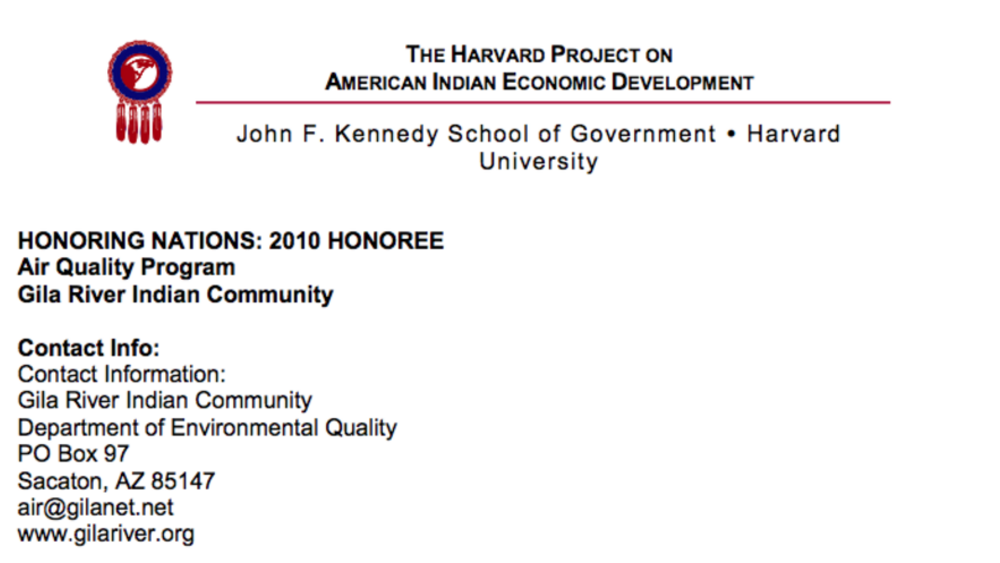
Gila River Indian Community Air Quality Program
In recent years, tribal governments in the United States have passed sophisticated laws and regulations to manage social and economic development in their communities. Although air quality is an important aspect of both economic growth and human health, very few Native nations have successfully…
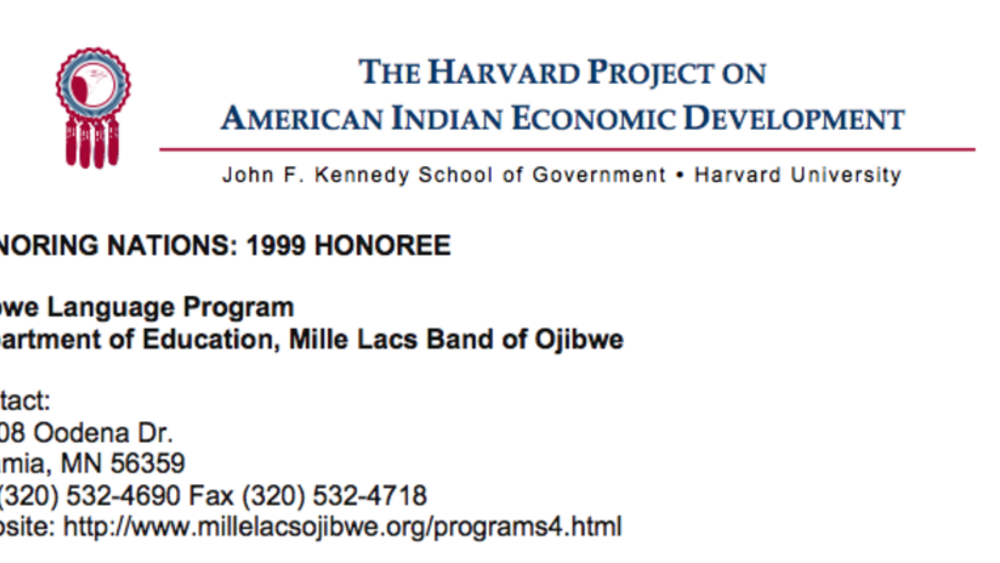
Mille Lacs Ojibwe Language Program
Created in 1995, this tribally funded program serves 350 students (from toddlers to teenagers) and uses elder-youth interaction, song books, and comic books to teach the Ojibwe language. In addition, the Program broadcasts language classes to local public schools in an effort to teach the Ojibwe…
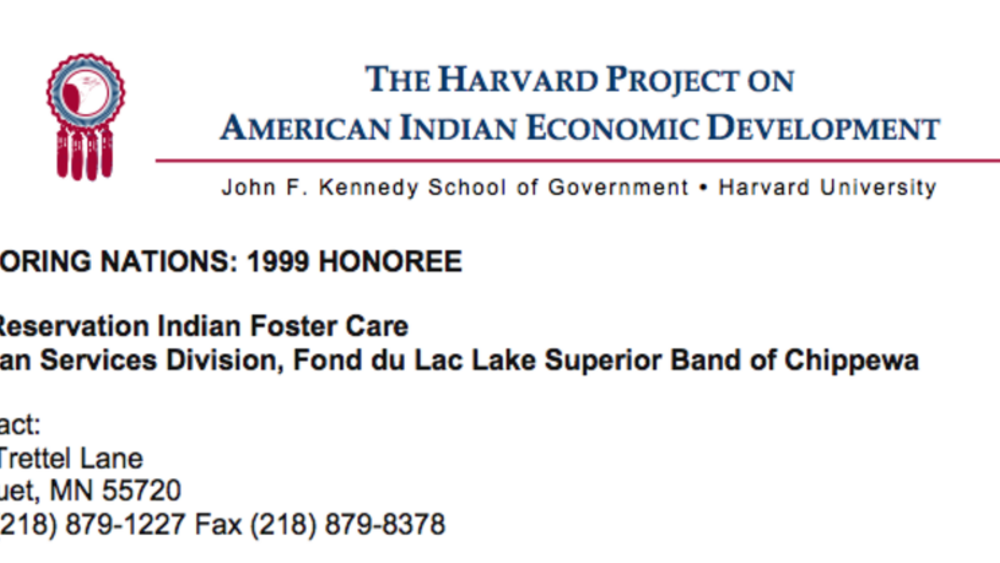
Fond du Lac Off-Reservation Indian Foster Care
By creatively reacting to state laws regarding foster home licensing, the Band established a foster care agency that dramatically reduced the number of Indian children in non-Indian foster care while simultaneously increasing the number of Indian children in Indian foster care. The agency has…
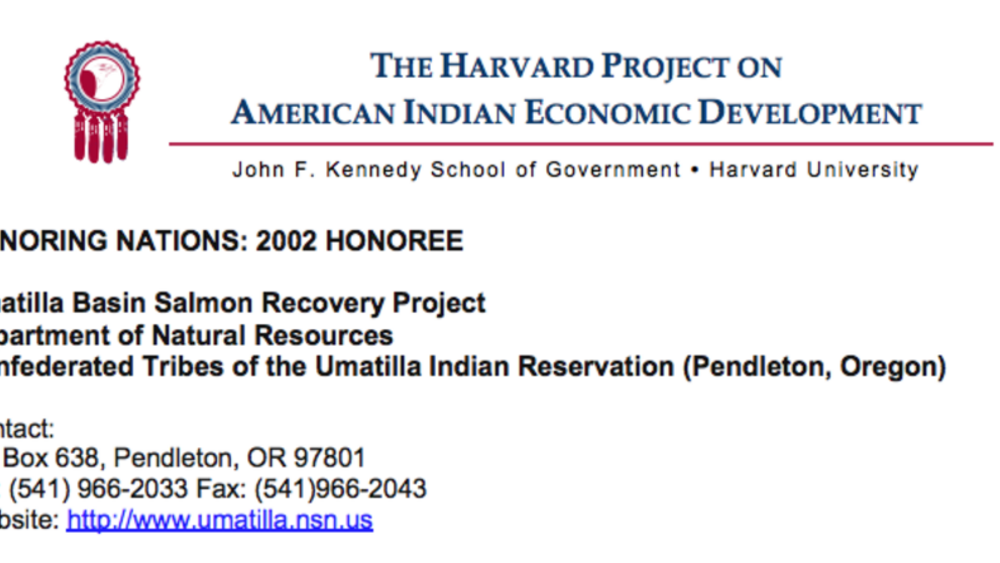
Umatilla Basin Salmon Recovery Project
The Umatilla Basin Salmon Recovery Project has successfully restored salmon to the Umatilla River, where they had been absent for nearly 70 years, while also protecting the local irrigated agriculture economy. Partnering with local irrigators and community leaders, the tribe undertook a…
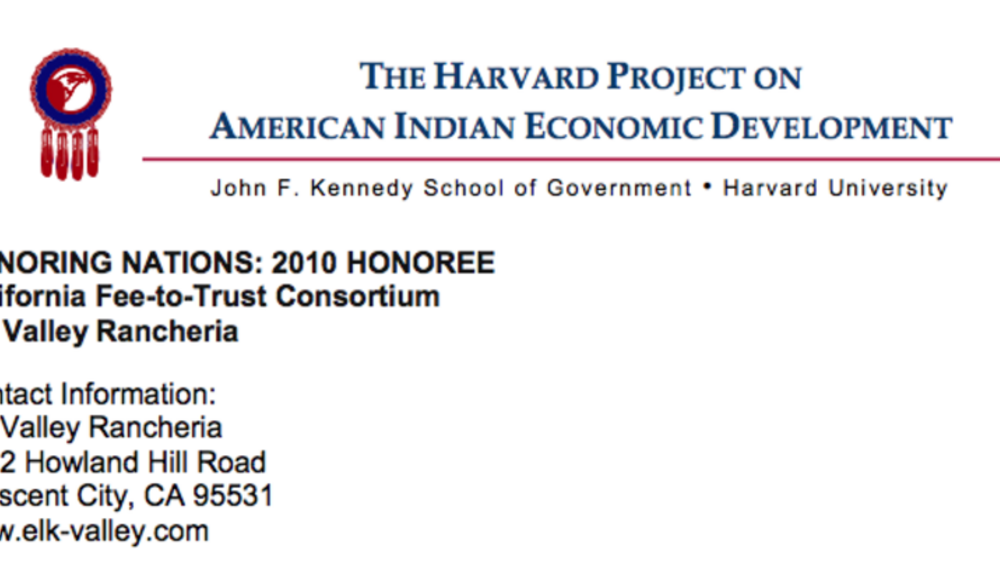
California Fee-to-Trust Consortium
The loss of traditional land is a source of longstanding trauma for Native nations. It has far reaching consequences that began at the time of dispossession and persist today. Many tribes struggle to regain territory in order to support the basic needs of their citizens – housing, economic…
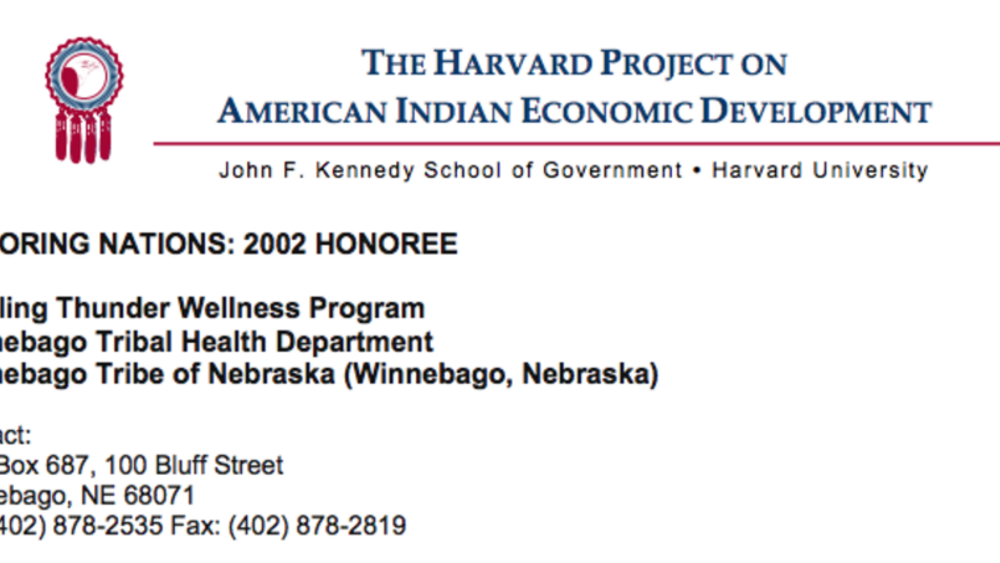
Winnebago's Whirling Thunder Wellness Program
To prevent and control the devastating effects of diabetes and substance abuse, in 1995, the Winnebago Tribe created the Whirling Thunder Wellness Program, which raises community awareness about diabetes and substance abuse, administers primary and secondary prevention services, and encourages…
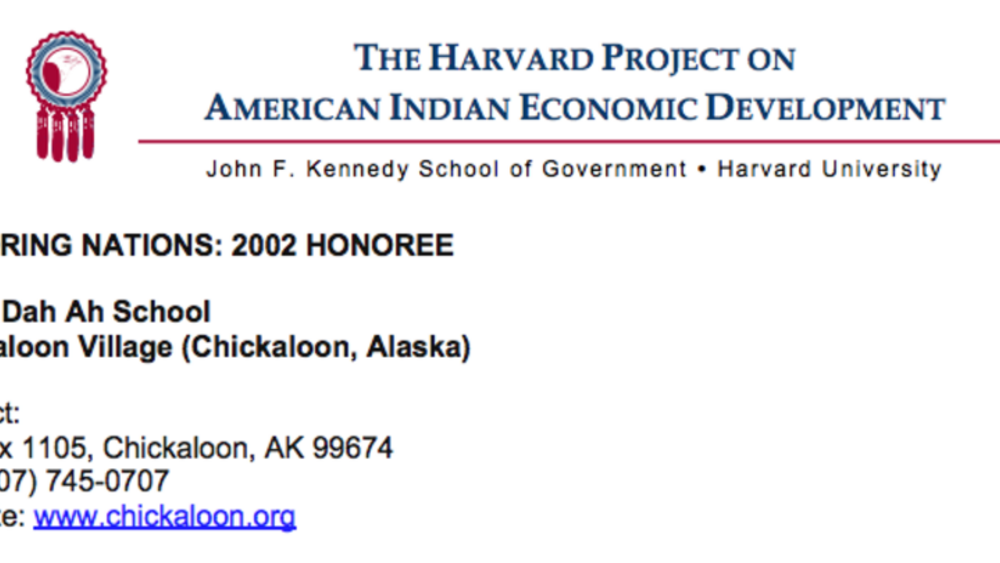
Chickaloon Village: Ya Ne Dah Ah School
Dedicated to giving community youth the skills necessary for functioning in a modern world while retaining and facilitating traditional knowledge and practices, the Ya Ne Dah Ah is Alaska’s only tribally owned and operated full-time primary school and day care facility. Located in a one-room…
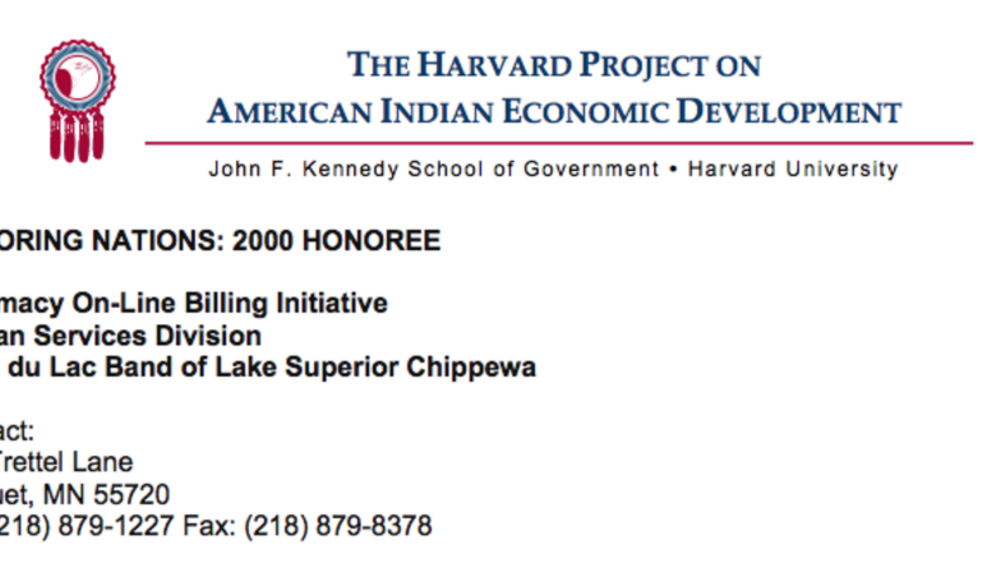
Fond du Lac's Pharmacy On-Line Billing Initiative
In 1995, faced with rising pharmaceutical costs, limited Indian Health Service (IHS) funds, and an inability to bill and collect from third party insurers, the Human Services Division contracted with a private sector firm to design and implement a computerized pharmacy billing system. The first of…
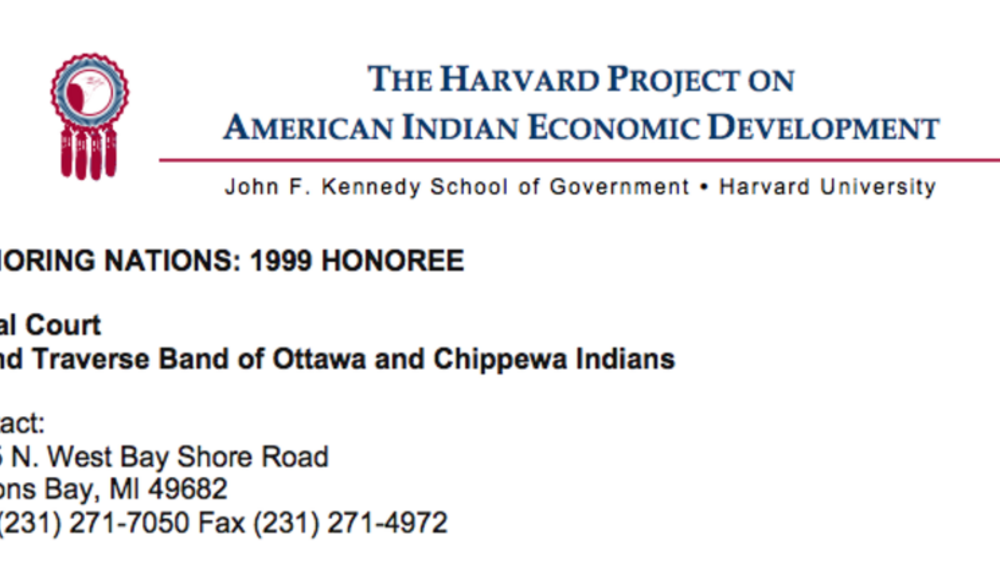
Grand Traverse Band Tribal Court
Constitutionally separated from the political influences of government, the Tribal Court hears more than 500 cases per year, and utilizes "peacemaking" to mediate in cases in which dispute resolution is preferred to an adversarial approach. The Court adjudicates on such issues as child abuse,…
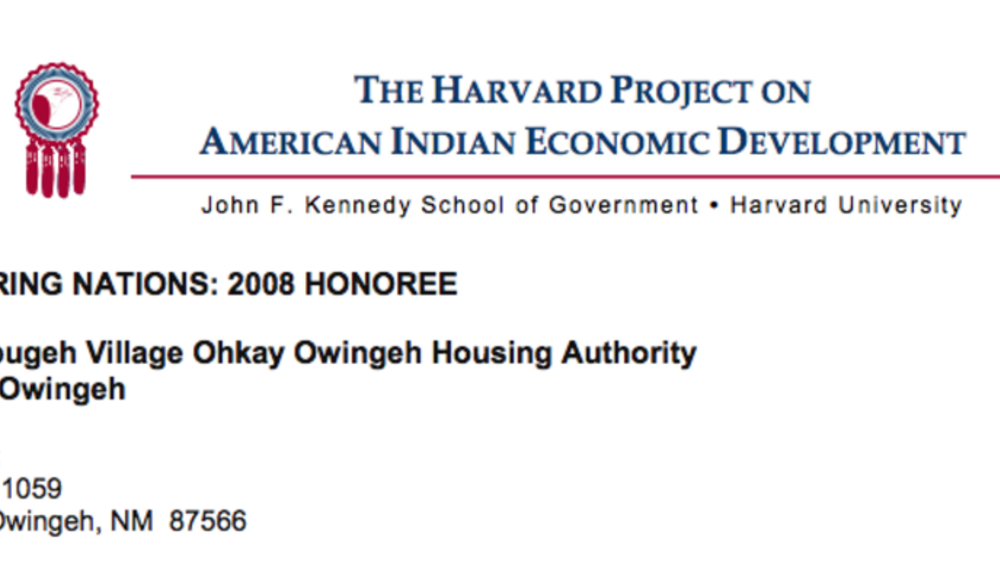
Tsigo bugeh Village (Ohkay Owingeh Pueblo)
Restoring communal living through Pueblo-style housing, the Tsigo bugeh Village offers "traditional living with a modern touch" for Ohkay Owingeh citizens. Designed to honor a sense of community and place, Tsigo bugeh addresses Ohkay Owingeh’s urgent housing demands with 40 units for single and…
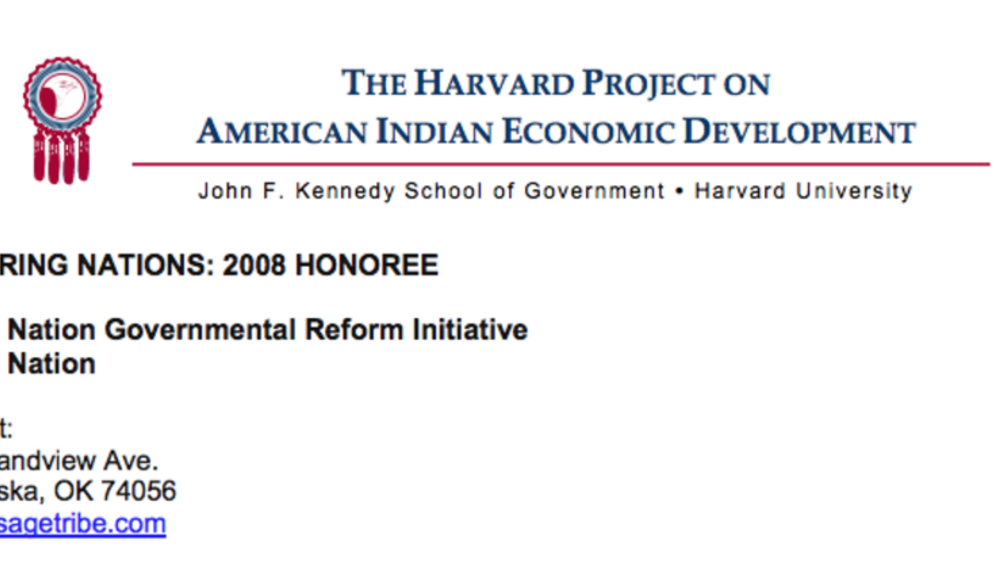
Osage Nation Governmental Reform Initiative
At the turn of the 20th century, the US government abolished the 1881 Osage Nation Constitution and imposed rules for land ownership and citizenship. Many Osage citizens were disenfranchised and the Tribal Council was granted only limited powers, which lead to years of weak government, corruption,…
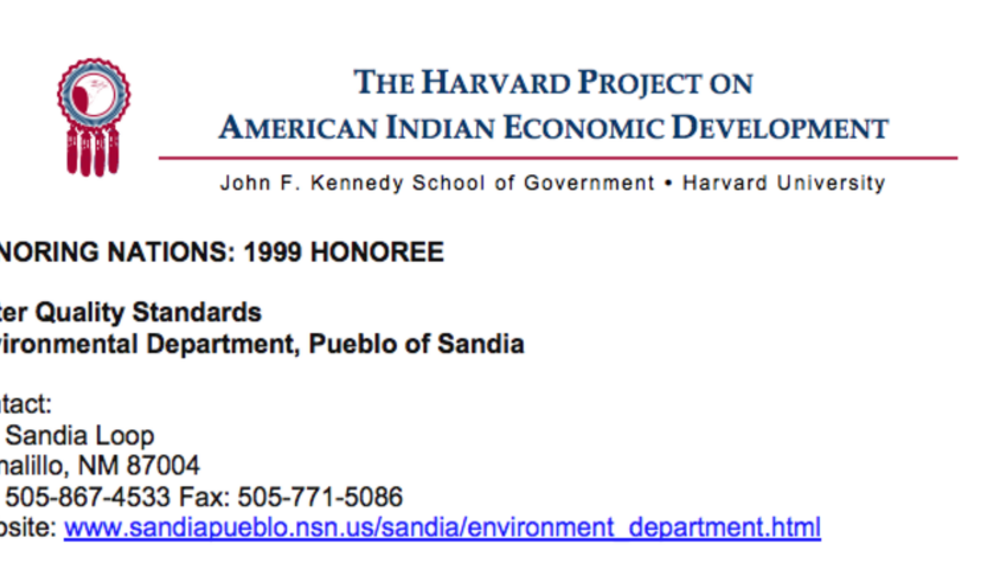
Water Quality Standards (Sandia)
Responding to the severe contamination of the Rio Grande River that threatens human health and ceremonial uses of the water, the Pueblo was awarded "treatment as state" status in 1990. Subsequently, the Pueblo developed and implemented US EPA approved water quality standards that give it control…
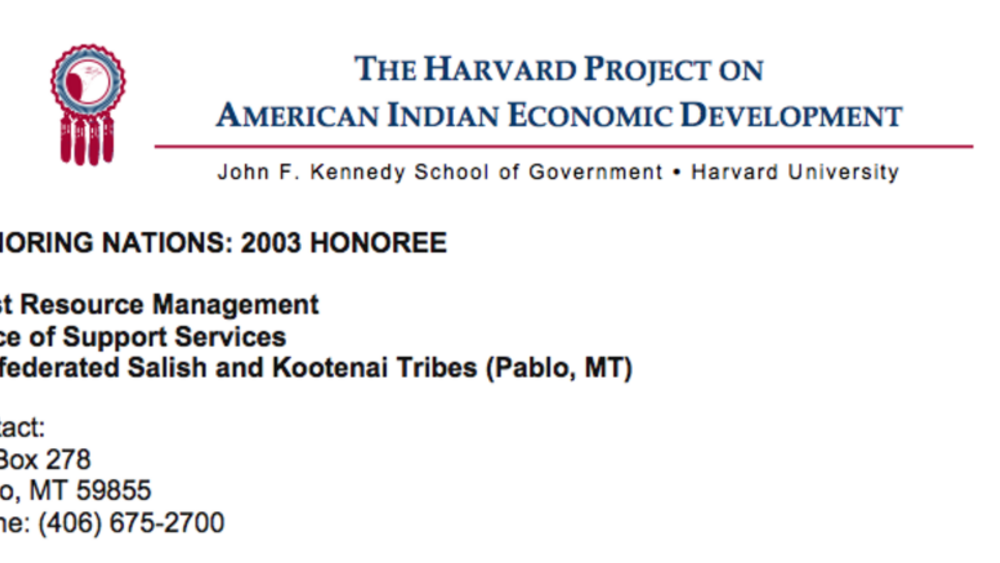
Trust Resource Management (Salish and Kootenai)
For more than three decades, the Confederated Salish and Kootenai Tribes (CSKT) have been building capable governing institutions and taking over management of resources and programs previously managed by outsiders. Recognizing that self-management both allows the tribal government to determine its…
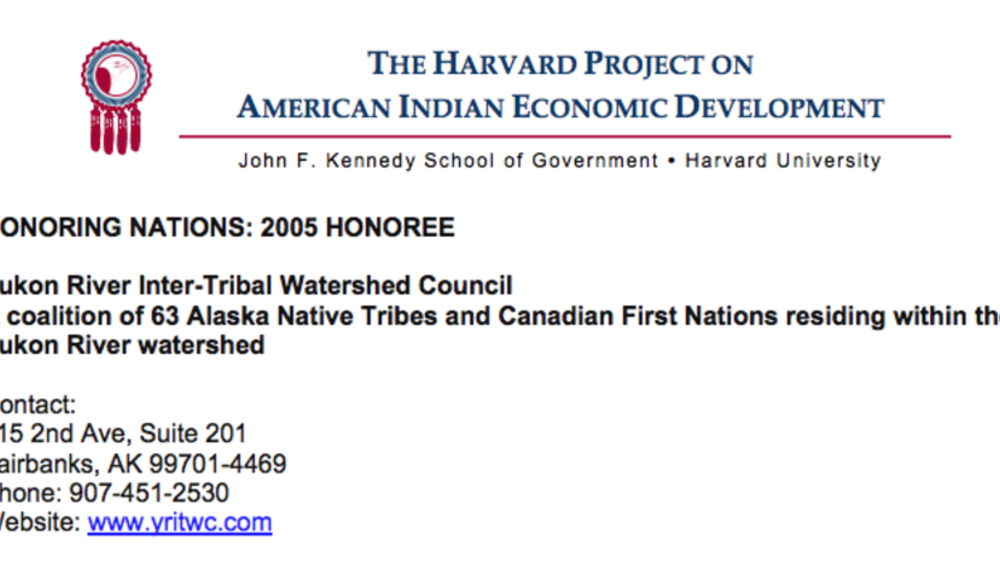
Yukon River Inter-Tribal Watershed Council
The Yukon River runs for 2,300 miles across the northwestern corner of North America. Many generations of Native people have drawn on its waters for food, drink, and other necessities. Recent development and changes in land use have affected the quality of Yukon River water. In 1997, chiefs and…
Pagination
- First page
- …
- 1
- 2
- 3
- …
- Last page
